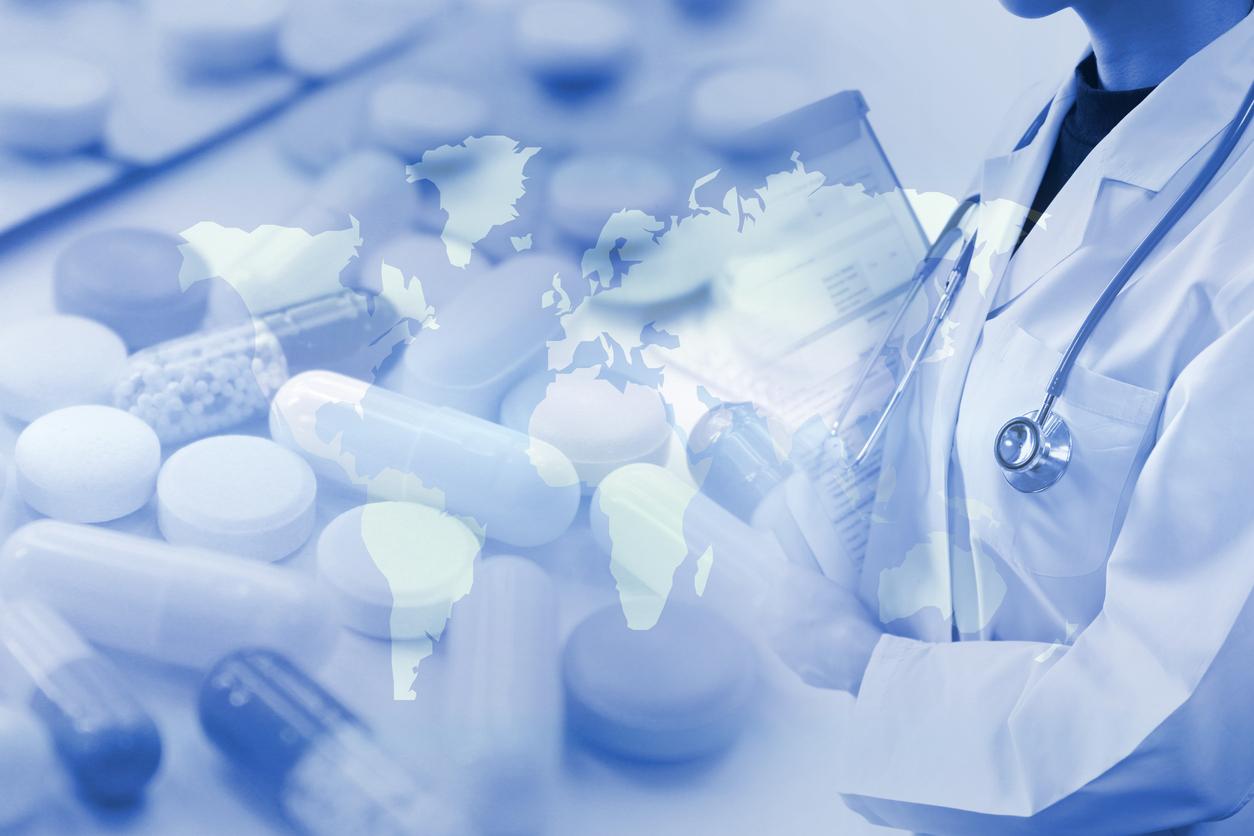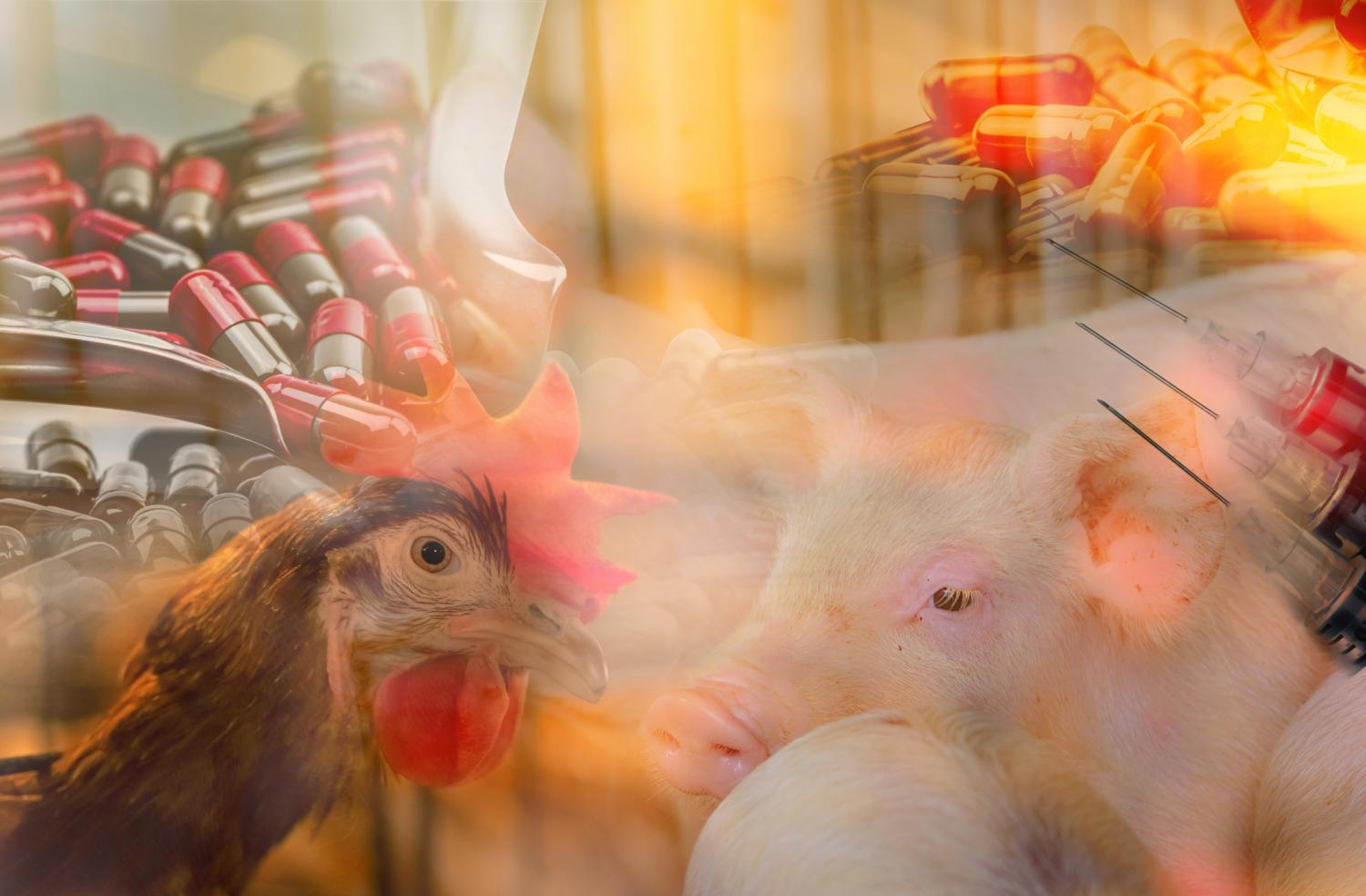World leaders today agreed to a wide-ranging set of commitments to address antimicrobial resistance (AMR) through a One Health approach.
The commitments are laid out in a political declaration adopted today by 193 United Nations (UN) member states at the UN High-Level Meeting on AMR in New York. It's the second time in 8 years that the UN has addressed the rising threat of drug-resistant infections, which recent estimates suggest have killed more than a million people annually since 1990 and could claim more than 39 million lives by 2050.
While the 2016 meeting aimed to raise global awareness of AMR, today's meeting was focused on scaling up global, regional, and national efforts to tackle the problem. Setting a target goal of reducing global AMR deaths by 10% by 2030, the declaration calls on countries to fully implement and fund national AMR action plans, to reduce inappropriate antibiotic use in people and animals, to ensure equitable and timely access to antibiotics in all countries, to prioritize infection prevention efforts, and to promote efforts to boost antibiotic research and development.
UN General Assembly President Philemon Yang called the declaration a "strong blueprint," but said countries now must act.
"We must build on this political will with resources and accountability to ensure effective implementation," Yang said at the opening of the meeting. "Let us together rise to meet this challenge and secure a safer, healthier future for all."
'No country is immune to this threat'
The product of more than a year of deliberations among representatives of member states and other stakeholders, the political declaration recognizes AMR as an urgent global health threat that impacts the health of humans, animals, plants, and the environment, and poses threats to food safety and security, economic development, and sustainable development goals. It also acknowledges that while AMR affects every country, developing countries are seeing a disproportionate impact from drug-resistant bacteria.
"No country is immune to this threat," said World Health Organization (WHO) Director-General Tedros Adhanom Ghebreyesus, PhD. "But low- and middle-income countries bear the greatest burden."
Among the priorities of the declaration is bolstering national efforts to address AMR, particularly in developing countries. Those efforts have lagged since the 2016 meeting, when countries agreed to develop and implement national, multisectoral AMR action plans. While 178 members states have done so to date, an annual tracking survey shows that only 68% have implemented those plans, only 52% have a functioning multisectoral coordinating mechanism, and only 10% have dedicated funding for national action plans.
We must build on this political will with resources and accountability to ensure effective implementation.
The declaration calls for all countries to have national AMR action plans implemented, with national targets, by 2030. Furthermore, it calls for governments to commit to sustainable financing of those plans and sets a target of $100 million in international financing to help at least 60% of countries implement their national action plans.
"This is a global issue in every household, in every community, in every family, in every hospital, in every clinic," Mia Mottley, Prime Minister of Barbados and chair of the Global Leaders Group on AMR, said at a press briefing ahead of the meeting. "But we need to find the money to help those countries that are low, or even some middle-income countries, who may be fiscally challenged."

Ensuring equitable and timely access to antibiotics is another other highlighted priority. In many LMICs, Tedros noted, lack of access to antibiotics is a bigger issue than AMR.
"The irony of AMR is that it's fueled by overuse of antibiotics," he said. "And yet more people die from lack of access to antibiotics."
To address the problem, the declaration urges the Quadripartite organizations—the WHO, the World Organization for Animal Health, the UN Food and Agriculture Organization, and the UN Environment Programme (UNEP)—and member states to take steps to increase global access to and appropriate use of antibiotics in settings with the highest unmet need.
Acknowledging the reality that preventable infections drive antibiotic use in many low-resource countries, the declaration sets a target of 90% of countries meeting the WHO's minimal requirements for national infection prevention and control programs in healthcare facilities, and 100% of countries having basic water, sanitation, and hygiene (WASH) in all healthcare facilities, by 2030. It also calls for countries to promote routine immunization, invest in resilient and sustainable health systems, and accelerate efforts to ensure access to essential health services.
Antibiotic development incentives
The document also addresses the weak antibiotic pipeline, which the WHO and other groups have deemed insufficient to address the growing challenge of multidrug-resistant bacteria. To address the challenging financial market for new antibiotics, the declaration highlights the need for governments to develop new incentives and funding mechanisms to promote research and development into new antibiotics, along with diagnostics and vaccines.
"This is the most classic example I can find of a global public good," Mottley said. "If we don't find the money to do the research and be able to bring about relief through new antibiotics that are effective, then we are going to see more and more and more people die."
Another target included in the declaration is for least 70% of antibiotics used globally by 2030 to belong to the WHO Access group, which consists primarily of antibiotics that have minimal side effects and the potential to cause AMR. Although no targets are set for reducing inappropriate antibiotic use in human medicine, countries are urged to promote public awareness of AMR and educate healthcare workers on the importance of appropriate use of antibiotics.
This is a global issue in every household, in every community, in every family, in every hospital, in every clinic.
Other highlights of the declaration include commitments to "meaningfully reduce" the quantity of antibiotics used in the agri-food system, to promote research on the environmental aspects of AMR and integrate the environment into national AMR action plans, and to strengthen AMR surveillance systems. It also calls for the Quadripartite organizations to establish an independent panel for evidence for action against AMR, which has been likened to the Intergovernmental Panel on Climate Change.
Going forward, the Quadripartite Joint Secretariat will be the central coordinating mechanism for the global AMR response. UNEP Executive Director Inger Anderson said that the four Quadripartite organizations will work with governments and other stakeholders to ensure that efforts to address AMR encompass the human, animal, plant, and environmental sectors. She also sounded a note of urgency.
"Now is the time to step up and take action across a series of sectors," said Anderson. "What we need now is for leaders to speed up what they have begun."
Declaration not perfect, but provides 'building blocks'
AMR and public health experts reached by CIDRAP News say that the declaration, while not including everything they wanted to see, largely meets the moment.
"I think it's a far better document than what we had 8 years ago," said One Health Trust Founder and President Ramanan Laxminarayan, PhD, MPH. "Yes, it could have been better, but this is pretty darn good."
Tina Tan, MD, president-elect of the Infectious Diseases Society of America, said the commitments and targets agreed to by UN member states are necessary given the magnitude of the AMR crisis.
"The political declaration being adopted today by the United Nations really contains meaningful global commitments and targets that will help to drive progress in our fight against AMR," Tan said. "Expanding funding for AMR efforts, including additional funding for low- and middle-income countries through various mechanisms, is incredibly important."

But some expressed disappointment that no specific targets were set for reducing the inappropriate use of antibiotics in food-producing animals, which many believe is a significant contributor to AMR. Laxminarayan and others have called for a 30% reduction by 2030. According to reporting by the nonprofit public health research group U.S. Right to Know, the 30% target was included in earlier drafts of the political declaration but was ultimately dropped following pushback from the veterinary drug industry and leading meat-producing nations, including the United States.
"With no goals, any change or even no change can be deemed 'success'," said Gail Hansen, DVM, MPH, a veterinary and public health consultant. "Since the countries that have made a difference [on animal antibiotic use] have said that setting realistic targets are required to make progress, I don't know why the UN chose to ignore the science."
"They could have had a win here, and they just didn't come through," said Laxminarayan.
Madhukar Pai, MD, PhD, chair of the department of global and public health at McGill University, said the declaration is very comprehensive and covers many of the issues he and his co-authors highlighted in a recent commentary in The Lancet Microbe. But he would like to have seen more on over-the-counter use of antibiotics, which is a significant source of inappropriate antibiotic use in many LMICs.
"I did not see much about the millions of informal providers, pharmacies, and drug retailers who dispense tons and tons of antibiotics in low- and middle-income countries," he said. "Engaging them is a massive challenge for any country and will require creative programs to work with primary care providers on the ground, train them, and incentivize them to follow best practices."
At a symposium held last week in advance of the UN High-Level Meeting, Vanessa Frazier, the permanent representative of Malta to the UN and one of the facilitators of the political declaration negotiations, said that while the process was challenging and she would have liked for the declaration to be more ambitious, she's proud of what was produced.
"What's important is that these are building blocks and they don't go back but move forward," she said.























